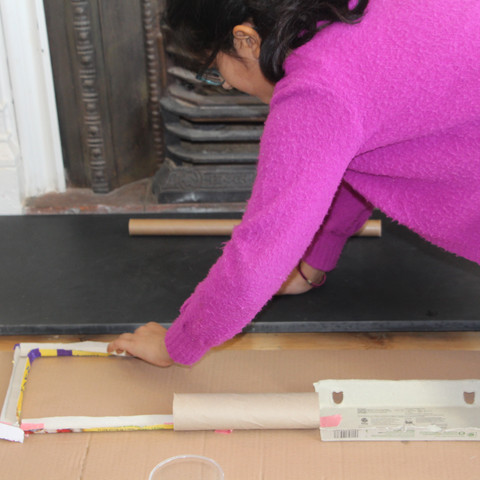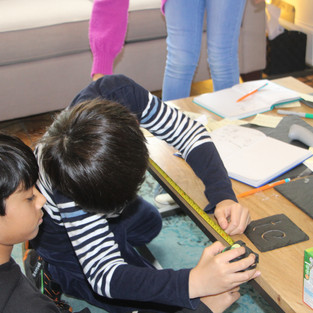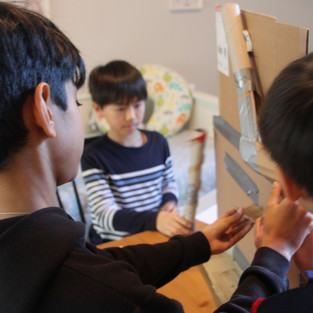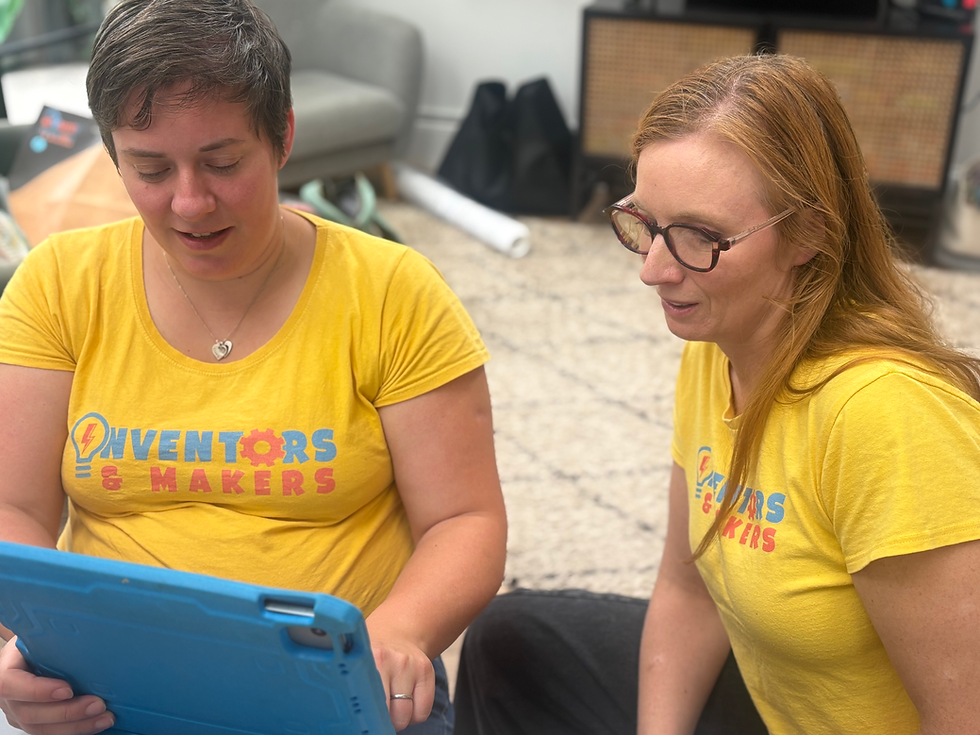Shooting for the Stars: Our Space Themed Launch Class
- Laura

- Feb 21, 2019
- 4 min read
Updated: May 6, 2025
We were really excited to host our first ever Inventors & Makers holiday class. Children from different local schools across years 4-6 joined us for a full day's inventing and making. Here's a quick run down of what we got up to and the skills children were developing.
Problem Solving
One of the three key skills that Inventors & Makers classes focus on is problem solving. This is really at the heart of everything we do.
In the morning, children went through the design thinking process to solve a problem faced by an astronaut on a space shuttle. The first stage of this process is to empathise, in order to fully understand the problems needing to be solved. Through watching a video clip, writing short diary entries and experiencing weightless via VR technology, children started to grasp some of an astronaut's potential problems. This allowed them to brainstorm a huge list of potential problems to solve, from them getting lonely to blowing their nose!
Each small group then chose one of these problems to focus on solving. To generate as many solutions as they could, we played the 'Worst Solution' game. Hilarity ensued as children came up with ideas such as 'being chased by a ferocious dog' as a way to get around a space shuttle quickly. While children had fun thinking of these, alongside other potential solutions, they all actually ended up incorporating some of these 'worst' ideas into their final invention in some way.
"Very silly ideas can be used to make amazing inventions."
The Sleep Well Machine:
- A specially made and glued down bed and duvet;
- A robotic arm extending from the ceiling to hand you your sleep cap (like a swim cap);
- A sleep cap incorporating VR glasses that can be hooked up with a camera in an astronaut's own bed back on Earth to really make them feel at home.
While the afternoon focused on making physical products, problem solving was still at the forefront. It was fascinating to watch one of the groups repeatedly send a marble down their run, iterating to solve new problems identified on each descent. They were even able to articulate this themselves as a method of problem solving.
Creativity
Creativity played a vital part in children coming up with their space themed inventions. However, it was perhaps even more evident in the afternoon's making session.
Their task in the main Maker Challenge for the afternoon was to create a marble run. The children were beyond excited to be given the freedom to create their own marble run with very little initial direction. In fact when one group had constructed their first run, instead of saying they had finished, they used every spare minute remaining to add second, third and fourth tracks for the marbles on the same board - they were hooked.
The materials used were intentionally low-fi to focus children on building and engineering principles. However, basic materials didn't necessarily mean low-level engineering principles were at play. We discussed momentum, speed, friction and gravity in terms of the marble's descent down the track. And children designed and created spirals, drops, tunnels and even a stand with a diagonal buttress support.
Children are so often directed in the tasks that they undertake that this was an opportunity for them to self-direct and help each other. The only adult intervention was directed questioning and some suggestions towards the end of the time allocated to bring pieces together. This meant that they could show real pride in what they had made. In fact when the parents arrived for pick up, they could barely tear them away from their constructions.
Collaboration
Again collaboration happened throughout the day. The groups changed for the morning and afternoon sessions to give everyone the chance to work with a mix of children. Children were actively coached in effective collaboration, for example acknowledging and building on others' ideas. Reflection also played an important part in this, as children were encouraged to discuss how they had been working together and what had worked well.
"I could've accepted more ideas and not shouted them down by saying 'nah', 'but' and 'what if'"
At the end of the day, one team were able to reflect on their marble run build and how they should have started off with an overall strategy as a team before separating off to work on different parts. While this was evidently the case to an observer from the start, it was important for this to play out so that children could learn this lesson themselves rather than through adult intervention and instruction.
So did children's skills actually improve? All children were asked to self-assess their skills in problem solving, creativity and collaboration at the start and the end of the day. The results speak for themselves...
Children had so much fun that they didn't want to leave at the end of the day. They were all asking when they could come back again. And I learnt a lot too that I'll be taking forward to make our next classes even better!










































Comments